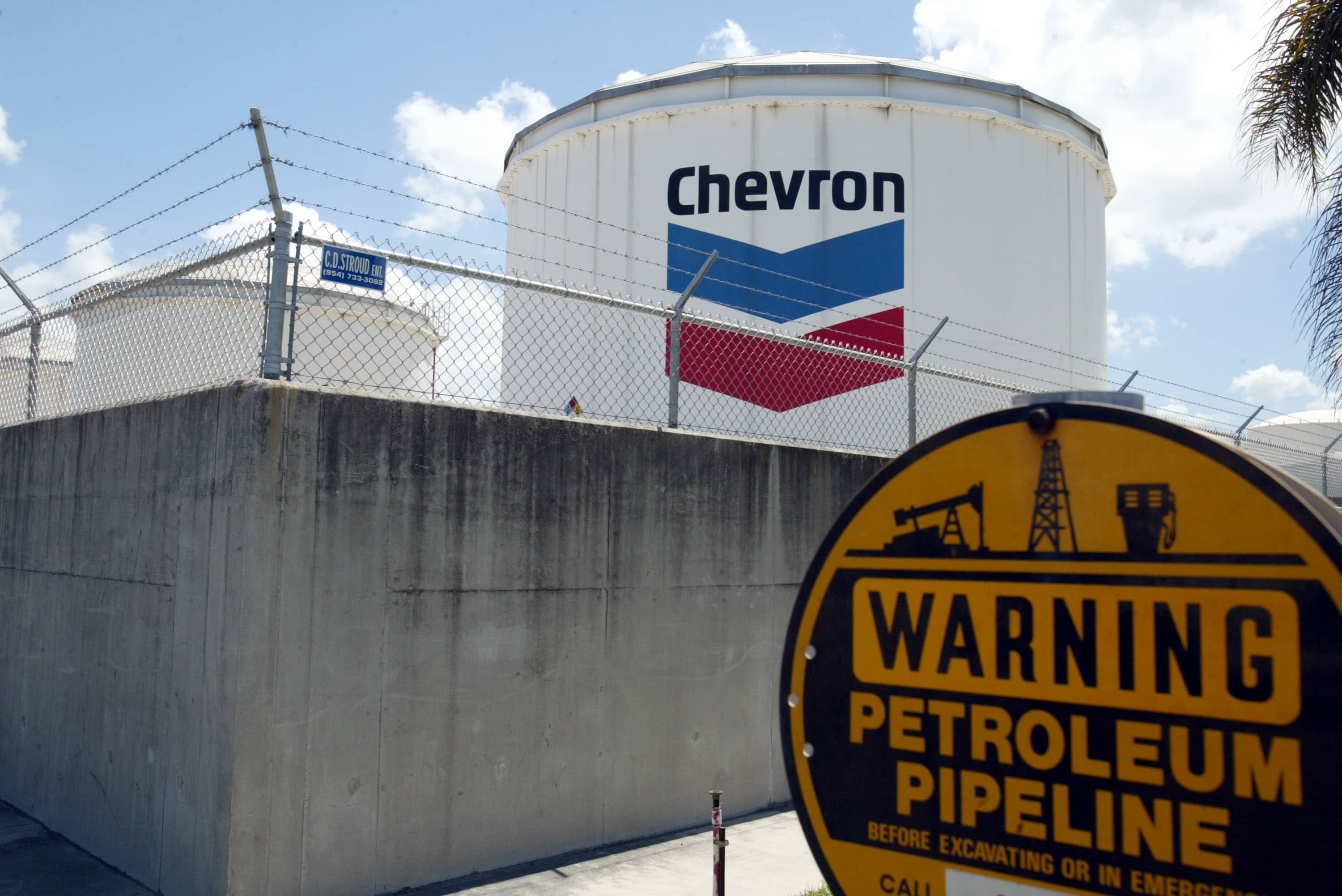Chevron on Friday reported an $8.3 billion loss in the second quarter as the coronavirus “significantly reduced demand.” Amid a historic drop in oil prices, the company’s average price per barrel of oil and natural gas liquids fell more than 60% year over year.
The oil giant lost $1.59 per share on an adjusted basis, while revenue came in at $13.49 billion. In the same quarter a year ago the company earned $2.27 per share on $36.32 billion in revenue.
Analysts expected the company to post a loss of 92 cents per share, on $22.097 billion in revenue, according to estimates from Refinitiv.
Part of the company’s loss came from noncash net charges of $5.2 billion, including a $1.8 billion write-down primarily associated with a downward revision in commodity price outlook, as well as a $2.6 billion impairment change related to Chevron’s Venezuela investment. The company also reported $780 million in expenses related to job cuts.
Shares of Chevron finished the day 2.7% lower, after earlier declining by more than 5%.
“The past few months have presented unique challenges,” CEO Michael Wirth said in a statement. “The economic impact of the response to COVID-19 significantly reduced demand for our products and lowered commodity prices. Given the uncertainties associated with economic recovery, and ample oil and gas supplies, we made a downward revision to our commodity price outlook.”
The company said that while demand and prices have started to show signs of recovery, they’re not back to pre-pandemic levels. Given the uncertain outlook, Chevon said results could be depressed next quarter, too.
During the second quarter, the company’s average sales price per barrel of oil and natural gas liquids in the U.S. was $19, down from $52 a year earlier. Natural gas prices rose to 81 cents per thousand cubic feet, up from 68 cents a year earlier.
“We’re focused on what we can control. Our actions are guided by our values and our long-standing financial priorities: to protect the dividend, invest for long term value and maintain a strong balance sheet,” Wirth said.
Earlier in July, Chevron announced plans to buy independent oil and gas producer Noble Energy, in a move that Wirth said would be a “good deal” for shareholders in both companies. Including debt, the total value of the deal was $13 billion.
The acquisition would enhance Chevron’s portfolio in the oil-rich Permian Basin, as well as in Colorado’s DJ Basin. Noble Energy also has assets in Israel and West Africa, which will further enhance Chevron’s international footprint. It will also lead to around $300 million in annual cost savings, Chevron said.
The deal was the industry’s largest since oil prices plummeted in March and April, hit by a price war between Saudi Arabia and Russia, as well as an unprecedented plunge in demand due to the pandemic
For the first quarter, Chevron reported earnings per share of $1.93, which included $680 million in one-time favorable items, and $31.5 billion in revenue, helped by downstream margins and increased production in the Permian Basin.
Shares of Chevron are down 28% this year.
Subscribe to CNBC PRO for exclusive insights and analysis, and live business day programming from around the world.
